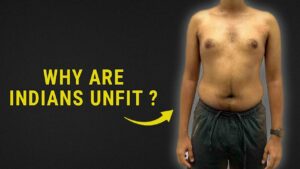In this video, the speaker discusses the potential effects of cutting out bread for 30 days. Bread, which is primarily made up of starch, raises blood sugar and insulin levels due to the quick breakdown of glucose molecules. Cutting out bread can lead to lower blood glucose levels, reduced insulin resistance, and improvements in A1C values. Bread is also known to cause digestive issues, such as gas, due to the fermentation caused by bacteria in the digestive tract. Additionally, bread contains anti-nutrients like phytates and lectins, which can hinder nutrient absorption and contribute to leaky gut and autoimmune diseases. The speaker suggests that avoiding bread, particularly modern hybridized wheat, can lead to improved overall health.

Our Summaries are written by our own AI Infrastructure, to save you time on your Health Journey!
Key Insights:
– Bread is primarily made up of starch, which is a complex carbohydrate that raises blood sugar and insulin levels.
– Cutting out bread for 30 days can lead to improvements in blood sugar levels, fasting insulin, and insulin resistance.
– Bread consumption can contribute to digestive issues, including gas and small intestine bacterial overgrowth (SIBO).
– Ancient grains may be better tolerated by individuals sensitive to modern hybridized wheat.
– Phytates in bread can interfere with mineral absorption, while lectins can damage the gut lining and contribute to leaky gut syndrome.
– Gluten found in wheat can be problematic for individuals with celiac disease or non-celiac gluten sensitivity.
– Organic bread may have fewer chemical additives, but it does not significantly differ in terms of its potential health effects.
– Sprouted bread like Ezekiel bread may have some benefits, but it still retains many of the issues associated with wheat.
– Exorphins in bread, particularly gluten-derived gluteomorphins, can bind to opiate receptors in the brain and create a desire for more bread.
– Cutting out bread for 30 days can lead to improved well-being, including reduced cravings, better mood stabilization, and increased focus.
Transcript
Hello Health champions. What would happen if you stopped eating bread for 30 days? There’s Ezekiel Bread, white bread, wheat bread, whole grain bread, sprouted bread, sourdough bread, and you’ve probably heard that some of these breads are considered junk food, but you’ve also heard that some are supposed to be health food. So how does that really work? Let’s talk about bread.
First of all, bread is about 80% starch, which is a polysaccharide, meaning many sugars. Individual glucose molecules are strung together in chains and branches to form starch. This is often referred to as complex carbohydrates, which are considered healthy. However, within seconds of consuming bread, some individual glucose molecules are broken down and quickly enter the bloodstream, raising blood sugar and causing a spike in insulin.
Cutting out bread for 30 days can lead to blood sugar and glycemic benefits. Blood glucose levels and A1C may decrease, fasting insulin may lower, and insulin resistance may improve. While bread is not the sole contributor to these changes, cutting it out can be beneficial for individuals on the diabetic spectrum.
Digestive complaints, such as gas, are common among bread consumers. This gas is produced by bacteria in the digestive tract, which feed on carbohydrates. Glucose is absorbed quickly, while complex carbs are absorbed slowly. Therefore, the longer it takes for food to reach the large intestine, the more complex carbs are broken down and absorbed. However, if there is bacterial overgrowth in the small intestine, a condition known as SIBO (small intestine bacterial overgrowth), the excess carbohydrates that aren’t fully absorbed lead to gas production. Cutting out bread can alleviate symptoms of bloating and improve digestive health.
Humans have been around for about a quarter million years, and for most of that time, our ancestors had a hunter-gatherer lifestyle. Grains, including bread, were not a significant part of their diet until about 10,000 years ago when agriculture emerged. While grains have been around for a long time, our bodies are not well adapted to digesting them, especially modern hybridized wheat. Today, we have over 25,000 different types of wheat, which have been optimized for yield and baking properties rather than our health.
Bread, especially modern wheat, contains anti-nutrients like phytates, which bind to minerals and hinder their absorption. It also contains enzyme inhibitors like oxalates, tannins, and gluten, which negatively affect protein digestion. Lectins in bread, such as wheat germ agglutinin, cause inflammation, intestinal permeability (leaky gut), and increase the risk of autoimmunity.
Cutting out bread for 30 days can improve nutrient absorption, reduce inflammation, and decrease the risk of many digestive complaints and diseases. Ancient grains, like Einkorn, Emmer, Spelt, Kamut, and Rye, are often better tolerated by individuals with sensitivities to modern wheat.
White bread, processed from wheat, lacks nutrients and contains higher levels of sugar-like substances. Whole grain bread contains more fiber but still has the same gluten and lectin content as white bread. Organic bread is not significantly different, except for decreased exposure to pesticides.
Ezekiel bread, made from sprouted grains, offers some improvements over regular bread. Sprouting enhances nutrient availability, breaks down some starches, and reduces lectin content. However, the benefits are not substantial compared to the negative aspects of bread consumption.
Bread, particularly gluten, contains exorphins, which act on opioid receptors and provide a sense of pleasure. This can lead to addiction-like behavior and make it challenging to give up bread. However, the body quickly adapts to balance itself without the stimulating effects of bread.
By cutting out bread for 30 days, individuals may experience reduced cravings, improved mood stability, better focus, and weight loss. Withdrawal symptoms may occur initially but will subside as the body adjusts.
In conclusion, eliminating bread for 30 days can have numerous health benefits, including improved blood sugar control, digestive health, nutrient absorption, and decreased inflammation. Ancient grains may be better tolerated for those with sensitivities, and moderation is key if reintroducing bread into the diet.
Note: This transcript has been lightly edited for readability.





